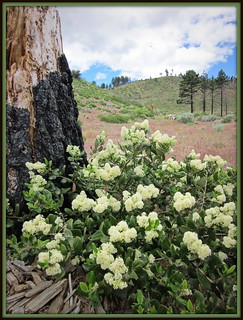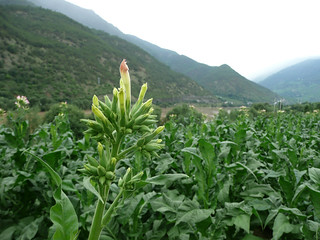Using Nicotine to treat Neonicotinoid pesticide induced Parkinson’s disease
 Nicotine, I’ve wanted to talk about nicotine for a long time but wanted to finish my experiment with it first. This post is mostly going to be about using nicotine to repair neonicotinoid pesticide damage in the brain but I want to get another post out there on the studies related to Parkinson’s disease in general, so stay tuned.
Nicotine, I’ve wanted to talk about nicotine for a long time but wanted to finish my experiment with it first. This post is mostly going to be about using nicotine to repair neonicotinoid pesticide damage in the brain but I want to get another post out there on the studies related to Parkinson’s disease in general, so stay tuned.
So I need to stop here and say I am not giving medical advice, I am not suggesting anyone addict themselves to nicotine without talking to their doctor first. I do want to share my experiences.
We tend to think of nicotine as bad, addictive, and deadly but it’s only one of the three. What if I told you nicotine was one of the most neuroprotective drugs out there especially to dopaminergic neurons and was being studied to treat both Parkinson’s and Alzheimer’s disease. What if I told you it was the strongest cholinergic drug and was awesome at pulling your body back into a parasympathetic state from sympathetic overload. Tobacco has long been sacred to Native Americans, it is the opposite of the evil we associate with it. If used with respect and properly it can be amazingly helpful and healing.
Nicotine is one of the most studied drugs. Years ago doctors and scientists observed that people who smoked rarely got Parkinson’s disease, in fact when it was looked at closer they found that people who smoked had a 50% reduction in Parkinson’s and those who got it progressed slower than non-smokers. Yes smoking protects you from Parkinson’s disease but of course causes cancer. Nicotine also makes the body make more dopamine and has been shown to reduce PD symptoms. However nicotine itself does not cause cancer unless applied to the same area consistently, i.e. lungs, mouth and many of the additives are the problem here. Nicotine can increase heart issues in people prone to heart disease as it can increase blood pressure but that is about the only negative health issue if not delivered to the body in a way to cause cancer.
When dopaminergic nerve cells (the cells which stop working in PD) are exposed to neurotoxins, if nicotine is added to the system, they don’t die. It protects them.
When I was diagnosed with Parkinson’s disease I did a ton of research to figure out how to cure myself.
One of things I think contributed to me getting this disease so young, beyond my two genetic mutations, was that I had massive neonicotinoid pesticide exposure in my 20s. These pesticides, which are commonly used in flea medication, permanently bind to the nicotinic acetylcholine receptors on nerve cells and are linked to causing Parkinson’s disease.
I spent about six months trying to find some way to kick these chemicals off my receptors but as I said they permanently bind and that is final. Nerve cells in your brain also do not regenerate so I could not grow new properly working nerve cells. Yet I was convinced these cells were not dead, just not able to function properly because some of the receptors were damaged. So was there a way to make new receptors? In fact there is a heavily studied way to make new receptors called addiction. When we use an addictive substance we create something called tolerance. This means our body wants more and more of that substance to feed the addiction and our body does that by making more receptors for the addictive substance to bind to.
Nicotine addiction works because nicotine binds to the nicotinic acetylcholine receptors, the receptors that were permanently damaged in my brain. As more nicotine is given to the body, more receptors are made. These receptors are permanent; they do not go away even if the nicotine is withdrawn. That is why people who have had addiction can very easily become re-addicted to a substance if they use it only once or twice after stopping for a long period of time. I suspected I had a way to replace my damaged receptors; I had a biological hack around my pesticide damage!
So yes I was going to addict myself to a highly addictive substance but an addictive substance that actually had been proven to protect my brain and slow the disease I had been diagnosed with.
 I started with 7mg patches of nicotine, working backwards through the stopping smoking system, and moved up to 14mg patches after two months with occasionally using 21mg patches to sleep at night when the stress from my divorce got bad. I found 21mg sedated me too much for daytime use but gave me excellent sleep. For you who have never smoked, nicotine, at least for me, was a lovely drug. It made me calm, happy, and increased both my energy and brain processing speed. Nicotine combined with the other 10 brain enhancing supplements/herbs I take made my brain work at a crazy speed but with a calmness that helped me process even better. I felt like a happy supercomputer!
I started with 7mg patches of nicotine, working backwards through the stopping smoking system, and moved up to 14mg patches after two months with occasionally using 21mg patches to sleep at night when the stress from my divorce got bad. I found 21mg sedated me too much for daytime use but gave me excellent sleep. For you who have never smoked, nicotine, at least for me, was a lovely drug. It made me calm, happy, and increased both my energy and brain processing speed. Nicotine combined with the other 10 brain enhancing supplements/herbs I take made my brain work at a crazy speed but with a calmness that helped me process even better. I felt like a happy supercomputer!
After about 3 months of using nicotine, I started having horrible patch reactions where my skin would get bright red and swollen under the patches and itch like crazy. It would take about 3-4 weeks for the redness and itching to completely go away and I had to use massive control to not rip the skin over my thighs apart. Imagine having 21 giant mosquito bites on your thighs. It became clear to me that my body was done with nicotine and that I was going to end up with scarring if I continued to use it. So I stopped it two weeks ago after five months of use. The interesting thing is I had no withdrawal. I suspect that is because my experiment worked. I now have the normal number of receptors again but not the more than normal number you would get with addiction. Because of this the normal acetylcholine I make can bind to these receptors again and start to get my brain cells back to working properly. In fact in the two weeks since I stopped the nicotine I have seen improvement in the PD like symptoms I experience. I’ve had enough ups and downs in the journey to cure myself to not make assumptions too early and so need more time to see if the nicotine has caused permanent improvement but I am very hopeful! As an added note it also helped my dystonia symptoms, especially storm activity.
